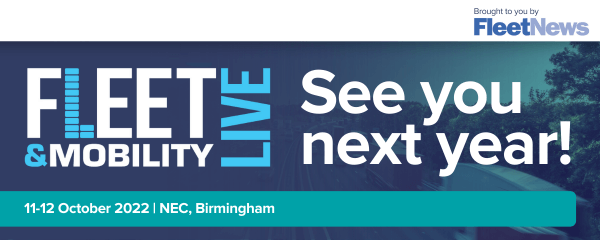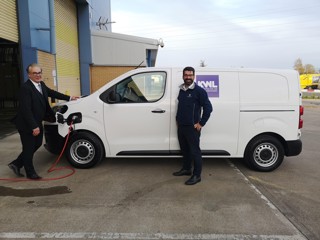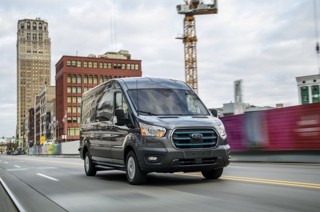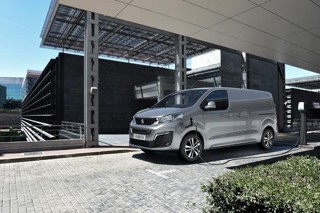Tesco is aiming to fully electrify its delivery fleet by 2028 as part of a commitment to reach ‘net zero’ by 2035.
The supermarket giant operates 5,000-plus vehicles on its Tesco.com fleet and deployed 30 electric delivery vans in Greater London this month.
To support the wider adoption of electric vehicles (EVs), Tesco is also rolling out 2,400 charging points for customers across 600 stores, with 400 stores due to be fitted with the chargers by the end of 2020.
By the time the programme has concluded, Tesco will have boosted the UK’s electric charging network by 14%.
It signalled its electric ambitions when it joined a coalition companies calling on the Government to bring forward a ban on the sale of new petrol and diesel cars and vans to 2030 from 2040. A decision is due soon on when the sale of new petrol and diesel cars and vans, as well as hybrids, will be ended.
Jason Tarry, CEO of Tesco UK and ROI, said: “In 12 months’ time, the UK will host the most critical climate change summit of the decade, known as COP26. At Tesco we want to play our part. That’s why we’ve brought forward our ambition to reach net zero in our UK operations by 15 years and made a series of new commitments to help us achieve that target, including reaching a new milestone today in our journey to using 100 per cent renewable energy by 2030.”
To help bring forward its ambition to become net zero in the UK by 2035, 15 years earlier than planned, Tesco is also launching a new partnership with renewable energy investor, Low Carbon, that will see the creation of three new solar farms in the UK.
The solar farms in Essex, Anglesey and Oxfordshire will generate up to 130GWh of energy per year, enough to power 44,828 three-bedroom homes, and help Tesco procure more renewable energy with additionality for the grid.
The work is part of the retailer’s commitment to use 100% renewable electricity across the Tesco Group by 2030 and will save 30,308 tonnes of CO2 per year, the equivalent of taking 14,457 cars off the road.
The current project follows the supermarket’s announcement last year that it would begin sourcing renewable energy from five onshore windfarms. This is in addition to fitting thousands of solar panels across its UK store network, with 60 stores fitted out already.
Tanya Steele, CEO of the World Wildlife Fund (WWF) UK, with whom Tesco has partnered in its ambition to halve the environmental impact of the average shopping basket, said: “It’s great news to see Tesco, as one of Britain’s flagship businesses, not only bringing forward the date of its longer-term commitment to net zero, but also pushing ahead with real action in the here and now to confront the climate emergency.
“Renewable energy and electric vehicles are essential ingredients for the economic recovery we want to see in the UK.”
In 2009, Tesco set the ambition to become a zero-carbon business by 2050. In 2017, it committed to science-based climate targets on a 1.5 degree trajectory, in line with the more stretching aspiration of the Paris Agreement.
It has published clear milestones for carbon emissions reduction in its own operations: 100% by 2035 in the UK, 35% by 2020, 60% by 2025, 85% by 2030 and 100% by 2050 across the whole Group. Its commitments and milestones are against a 2015 baseline.
The business has also set a deadline to reduce supply chain carbon emissions by 35% across food and manufacturing by 2030, and 15% for agriculture.
























Login to comment
Comments
No comments have been made yet.